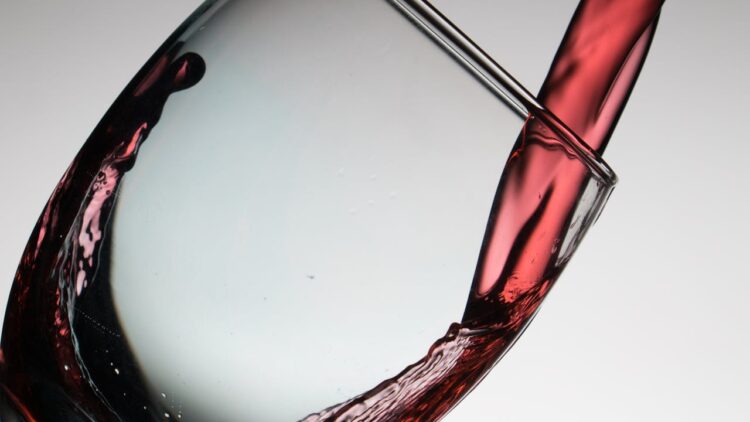Red wine, a well-liked beverage many people enjoy worldwide, is more than a tasty treat. It has been a part of social practices, festivities, and, surprisingly, day-to-day feasts in different districts. Red wine is good for health and has attracted attention due to its potential advantages. Red wine is produced by fermenting dark-coloured grape varieties, giving it its rich colour and complex flavour and infusing it with many beneficial compounds. These incorporate cancer prevention agents like resveratrol and flavonoids, which have been read up for their constructive outcomes on well-being.
How Red Wine Is Good For Health?

Read Also: 4 Ways to Live a Healthy Lifestyle
Red wine consumption in moderation has been linked to some health benefits. For example, it might increase heart well-being by further developing cholesterol levels and decreasing health risks. Red wine’s antioxidants aid in the fight against oxidative stress and inflammation, two factors in chronic disease. Drinking red wine can help people live longer and with better mental health. Moderation is essential, so keep that in mind. Moderate consumption, typically one glass per day for women and up to two glasses per day for men, is required to reap the health benefits of red wine. Consumption of excess can have adverse effects on one’s health, such as damage to the liver and an increased risk of certain cancers.
5 Benefits Of Red Wine
1. Improved Sleep Cycle
One of the benefits of red wine is that it contains melatonin, a hormone that regulates sleep-wake cycles. Drinking it in moderation can help you sleep better By promoting relaxation and helping regulate circadian rhythms. The amount of melatonin in red wine varies, but its presence can help improve sleep patterns when consumed in moderation.

2. Good For Heart
Benefits of Red wine for cardiovascular health. Resveratrol and flavonoids, two antioxidants, aid in reducing arterial inflammation and oxidative stress. This, thus, works on endothelial capability and upgrades the widening of veins, advancing better flow and reducing the risk of heart attacks. Red wine consumption regularly and in moderation has been shown to increase HDL (good cholesterol) levels and improve overall heart health.
3. Improving Bones
Silicon is a mineral in red wine that helps keep bones strong and dense. When consumed in moderation, red wine may improve bone health, lowering the likelihood of osteoporosis and fractures, particularly in postmenopausal women who are more likely to lose bone. Silicon promotes overall skeletal health by supporting the development and upkeep of connective tissues like bones.
4. Skin Health
One of the benefits of red wine, such as resveratrol and quercetin, has been shown to affect skin health. These substances prevent damage caused by free radicals and oxidative stress, exacerbating premature skin ageing. Average utilization of red wine might help decrease the presence of kinks, further developing skin versatility and advancing a young tone.

5. Regulate Blood Sugar
Consuming red wine has helped control blood sugar levels and improve insulin sensitivity. This is especially helpful in lowering the likelihood of developing type 2 diabetes. Resveratrol, one of the most essential antioxidants in red wine, is thought to improve insulin sensitivity and glucose metabolism, allowing for better control of blood sugar levels.
Beer and Wine for Skin health
Regarding health, beer and wine for skin health have distinct advantages that should be considered. Brewing beer with hops high in antioxidants, like polyphenols, has significant benefits for the skin. Antioxidants fight free radicals that cause wrinkles, fine lines, and other skin ageing signs. Beer is rich in B vitamins, particularly niacin (vitamin B3), improving skin texture and tone while enhancing skin hydration. Beer’s silica helps collagen grow, essential for keeping skin firm and elastic. This mineral promotes a youthful complexion by reducing the appearance of sagging skin. However, due to the diuretic effect of alcohol, excessive beer consumption can result in dehydration, just like any other alcoholic beverage.

This parchedness can appear as dry, dull skin, underlining the significance of balance. On the other hand, red wine is praised for its anti-ageing properties because of its antioxidants like resveratrol and polyphenols. By neutralizing free radicals, these substances reduce oxidative stress, which causes cell damage to the skin and accelerates ageing. Mainly, resveratrol improves skin firmness and elasticity by stimulating collagen production and activating longevity genes. Red wine’s polyphenols have anti-inflammatory properties that can calm irritated skin and reduce redness, which is good news for people with sensitive skin or rosacea.
The balance stays basic while appreciating wine for skin benefits, as over-the-top liquor utilization can prompt drying out and possibly fuel skin issues. Ideal utilization levels differ; however, control is generally suggested, followed by a fair eating and skincare routine. Picking either brew or wine for skin well-being relies upon individual inclination and skincare objectives. Beer and Wine for skin health contain distinct components that, when consumed in moderation, can help skin appear vibrant and youthful. These beverages can be added to a healthy lifestyle and improve the overall health and appearance of the skin, whether you’re taking advantage of beer’s antioxidant-rich benefits or red wine’s anti-ageing properties.

When consumed in moderation, red wine is good for health, with some benefits of red wine. Because it contains polyphenols and antioxidants like resveratrol, it improves cholesterol levels and the risk of heart disease. These compounds contribute to overall well-being by combating oxidative stress and inflammation. Average red wine consumption has been associated with improved mental health outcomes and may even increase longevity by the risk of chronic diseases.
However, it is essential to stress that moderation is essential. Inordinate admission can refute these advantages and lead to dangers to well-being, such as liver harm and expanded growth risk. Red wine can positively impact one’s health while having a minimal negative impact by balancing enjoyment and responsibility. Red wine can be added to a reasonable eating routine, close to other solid propensities like regular activity and a shifted admission of leafy foods. It can upgrade its positive effect on wellbeing.
To get more of our exclusive content on Health Care and Lifestyle. Follow us on YouTube and Instagram.






